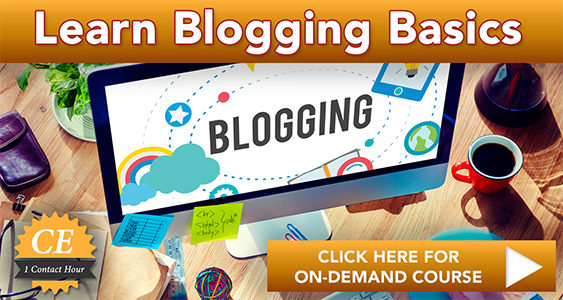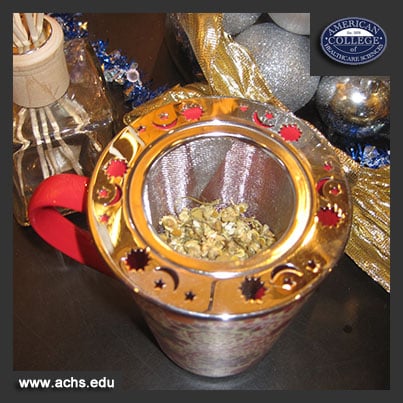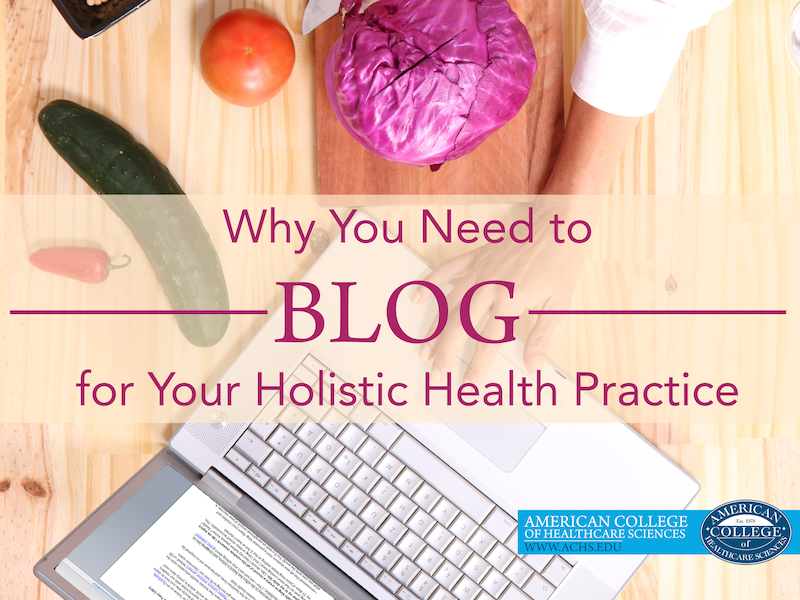
Blogging can generate a six-figure income for some people. Might you be the next one?
You won’t know until you get started! I strongly encourage you to set up a blog as you start your holistic health studies. You can adapt many of the essays, research, case studies, and labs from your course assignments to use as blog posts. While it might take a while to get traffic built up to your blog to the point where affiliate revenue will be useful, the sooner you start the better!
Right from the beginning, follow these 12 best blogging practices to start a blog off right:
1. Choose the right tools.
There are many tools you can use to set up a blog including WordPress, Blogger.com, weeebly.com, wix.com, Squarespace, and many others.
2. Purchase a unique URL.
Get a unique URL reserved somewhere like godaddy.com (Wix and Squarespace also offer this service when you’re building your blog) and connect it to your blog.
Make yourself business cards with your blog URL on it to use in real life.
Don’t change your URLs if you can help it—if you have to, do a 301 redirect.
3. Be upfront in your About Me bio.
Add a general disclaimer to your About Me bio and/or footer. Something like this:
This blog is for entertainment and education purposes only. The content included is my opinion and is not intended to diagnose, treat, or cure disease.
Or: This article has not been reviewed by the FDA. This information has been provided for educational purposes only and is not intended to treat, cure, diagnose, or prevent disease. Always consult your primary care physician or naturopathic doctor before making any significant changes to your health routine.
4. Don’t be shy to share your credentials.
Include accurate and current information about your credentials. For example, “I am currently a student at American College of Healthcare Sciences www.achs.edu, an accredited College offering integrative health programs. I am enrolled in the xxx program and expect to graduate [date].” Once you graduate, update this and include a link to your graduation page so folks can verify this for themselves!
5. Share your memberships.
Include accurate and current information about your memberships. For example, “I am a student member of the American Herbalists Guild.”
6. Don’t hide your FTC disclaimer.
Add the required FTC disclaimer to your About Me page or footer (or header!). It must be clear and conspicuous. Even if you do not have affiliate advertising or sponsors to start with, it is best to have this in place right away so you don't forget. If you are being sponsored to post a link or article or recommend something—even if all you received was a free product to review—you must state this. Even posts on Twitter and Instagram require a hashtag like #affiliate or #sponsored to keep compliant.
You’ll want to read this guide by the FTC: https://www.ftc.gov/sites/default/files/attachments/press-releases/ftc-staff-revises-online-advertising-disclosure-guidelines/130312dotcomdisclosures.pdf
Here is my current disclosure: “Disclosure of Material Connection: I am the co-owner of Sherwood Lavender Farm and the CSO of American College of Healthcare Sciences. I sometimes review books and products on this site. I will identify if I have been provided these items for free in exchange for my review, or if I have paid for them. However, in either case, all opinions are my own. My blog posts represent my personal opinion and my views do not necessarily reflect the views of my employer. This blog may contain affiliate links - using these links costs you nothing but generates a small commission to the blog author. I am disclosing this in accordance with the Federal Trade Commission’s 16 CFR, Part 255: ‘Guides Concerning the Use of Endorsements and Testimonials in Advertising.’”
7. Give credit and document your research.
Include citations and references with each blog post. If you are adapting or using an assignment from your course, include the name of the course, the name of your instructor for the section, and a link to the course description on the website.
There are a couple of reasons to do this: first, it ensures correct attribution to avoid issues with fair use or copyright (Reminder—you cannot copy course content or any other student’s work or instructor comments for your blog posts); second, if you get comments and questions about your formula or why you did something a certain way, you can go back to see why you did that.
For example, we've been seeing a lot of questions on social media and blog posts about using essential oils in the bath. Someone “remembered” that we teach making bath salts with Epsom salts and say Epsom salts enhance the bathing experience (or something like that). This person took from memory that her ACHS course claimed that Epsom salts dissolve essential oils, which they don't because they are a solid, and solids don't dissolve volatile liquids. We do say Epsom salts enhance the oils and bath experience, which they do, because Epsom salts are magnesium, which is a pain reliever and relaxant by itself. So, by tracing back where the graduate’s info came from, we were able to expand on her comment, correct her understanding and memory of what she'd learned, and clarify the misunderstanding. Always a good lesson!
8. Identify the origin of your images.
Always provide source information for your images, even if they are copyright-free from Flickr.
Better yet, take your own images! There are some good apps that will help you become an “expert” photographer with your smart phone. There are also tools that let you convert your Instagram photos directly to blog posts.
9. Tell the truth.
Be honest! If you are writing fiction, indicate it is fiction. If you are writing nonfiction, stick to the truth and don’t embellish.
10. Respect privacy … and FERPA!
Always comply with privacy and Family Educational Rights and Privacy Act (FERPA) rules. If you want to share a case study, get the case study participant’s permission in writing and remove all identifying information.
11. Download your own personal editor.
As an ACHS student, you get a free Grammarly account—so take advantage! Set up your account with your achs.edu email address and use it when you blog – nothing tanks your blog credibility faster than typos!
12. Mind your Ps and Qs.
Lastly, mind your tone and your Ps and Qs. As a holistic healthcare professional in any modality, your practice is built on positive psychology and coaching principles. Think carefully about your digital footprint and what you want your grandchildren to find when they google you. : )
Then, get out there and blog! The number one way to be a successful blogger is to sit down and do it. We have a great blogging class in our on-demand CE library to get you started: https://www.achs.edu/course/basic-blogging-gain-leads-and-clients
Disclosure of Material Connection: I am the CSO of American College of Healthcare Sciences, the Institution that publishes this blog. However, all opinions are our own. If this blog contains affiliate links, they will be marked with an asterisk. I am disclosing this in accordance with the Federal Trade Commission’s 16 CFR, Part 255: “Guides Concerning the Use of Endorsements and Testimonials in Advertising.”
This article is for informational purposes only. It is not intended to treat, diagnose, cure, or prevent disease. This article has not been reviewed by the FDA. Always consult with your primary care physician or naturopathic doctor before making any significant changes to your health and wellness routine.






